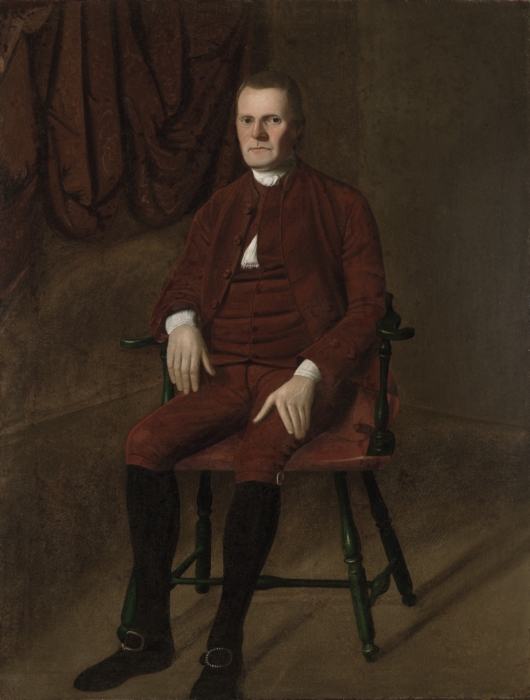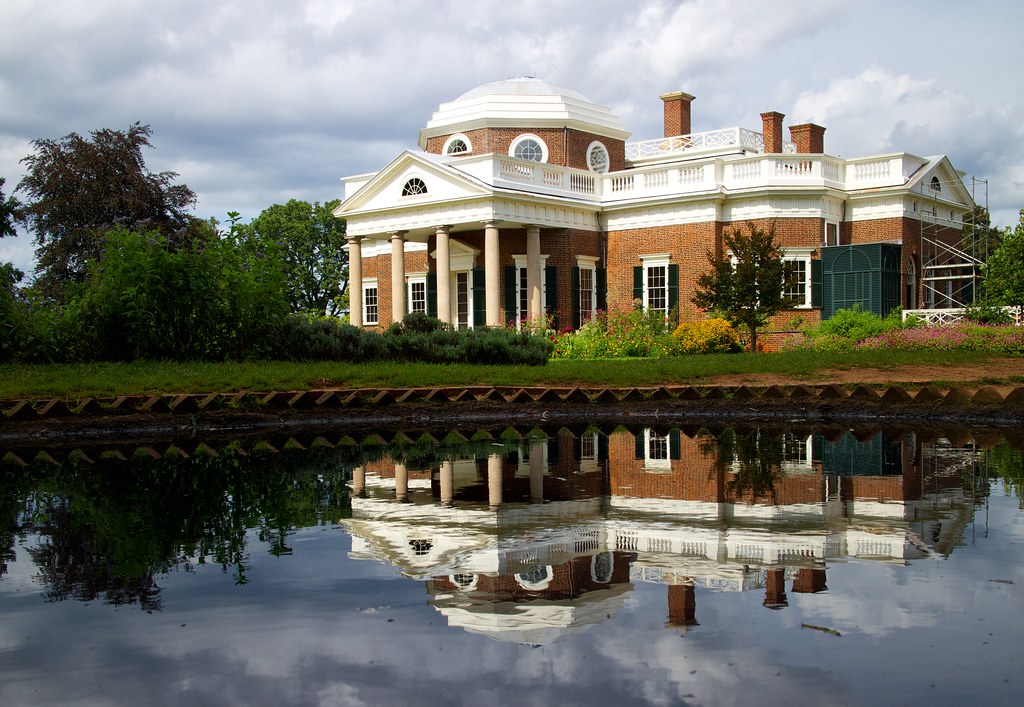A man walked into Monticello, and came out knowing what’s wrong with America – but not in the way he thought.
On Independence Day, Jeffrey Tucker embarked upon a guided tour of Monticello, once the estate of Thomas Jefferson and now a museum and educational institution dedicated to preserving the legacy of a towering and complex figure in American history.
Disappointed with the experience, and apparently in more of a mood to complain than to learn from a new and different viewpoint, Tucker took his tale of woe to the willing ears of Fox & Friends last week. Remembering that a prior visit to the mansion, which was built with the forced labor of enslaved human beings, had “filled him with a sense of majesty about the place,” Tucker was upset by what he described as the “disease of wokeism” taking over the “sacred space” of Monticello.
Apparently the tour guide’s frank discussion of antebellum social conditions and real American history, as opposed to American mythology, was a little too much for Mr. Tucker, founder of the Brownstone Institute, an organization with a mission to prevent the government from enforcing public health measures during a pandemic because quarantines and mask mandates threaten “freedom.” That really puts the institution of chattel slavery into perspective, doesn’t it?
It’s true that as our nation becomes more self-aware and cognizant of previously glossed-over portions of history, stories that include the experiences of all Americans, not merely the heroic exploits of godlike founding fathers, will be recounted more often (and more honestly) than they were in previous generations. If such a thing is “woke,” then, friends, Thomas Jefferson himself was on the verge of wokeness. He knew that chattel slavery was a “hideous blot.” We know because he said so. “I am happy in believing that the conviction of the necessity of removing this evil gains ground with time,” he wrote to a friend in 1823. “[W]e feel & deplore it morally and politically, and we look, without entire despair to some redeeming means not yet specifically foreseen.”
What Jefferson did not foresee was the extent to which machines would one day do our work for us. Oh, sure, he had an inkling of the possibility; he was interested in the application of steam power for boats and grist mills, to ease human labor. Large scale steam power through the burning of coal first arose in England, and it’s no accident that they were early abolitionists (at least when it came to busting up the transatlantic slave trade). Still, Jefferson was unprepared to follow through with his notion that all [people] were created equal, because doing so would risk his prosperity. When the situation came to a head some decades later, southern states with their “peculiar institution” seceded to protect their means of production from northern states which, like England, had industrialized their way to abolition.
Just as slave-owning founding fathers were the product of a different time, unable to let go of an institution that they knew, deep down, was immoral, because they depended on a certain level of economic prosperity, so too are we.
Fueling the machines that spin, weave, cook, and carry us around is upending the stable, moderate climate that made settled human civilization possible. Add to that the moral hazard of sweatshop conditions and trafficked labor of the modern-day slaves who continue to provide food, cheap goods and services for us at “everyday low prices” and it’s clear why many today are just as unwilling or unable to quit a poisoned system as Thomas Jefferson was.
At best, those who embrace mainstream environmentalism hope to shift our current consumption to “clean energy” that still requires fossil fuel infrastructure to build and maintain. There is little talk of learning to do with a lower standard of living, and the people who do talk about it are regarded as ridiculous Luddites. None of this will change the near-certainty of people a few generations downstream regarding us as cowards who knew our system was evil and kept doing it anyway because we were hooked on having so much easy stuff.

Which brings us, in a roundabout way, back to the discussion of slavery, or as some Texans would prefer to say, “involuntary relocation.” Much has been said lately about state policies that require schools to teach a censored version of history that won’t leave students feeling “discomfort” about their race or gender. Somehow, it’s considered more appropriate to treat students (and tourists at Monticello) like little white button mushrooms, by keeping them in the dark and feeding them excrement.
When it comes right down to it, the only reason to teach sanitized American mythology instead of introducing historical figures that even white boys can be proud of (like Roger Sherman, for example, as if there’s some reason they can’t also be proud of Harriet Tubman and William Harvey Carney) is if the administrators and parents making these decisions prefer to identify with the bad guys but don’t want to get called out or feel bad about it. (One needn’t think too hard to realize what institution they’re likely to eagerly bring back if it meant that they could live a life of prosperous leisure in a post-carbon economy.)
There is too much overlap between those who complain that “nobody wants to work” and those who don’t want to work at understanding complex history and founding fathers who were humans, not gods, who were sometimes brilliant and sometimes did terrible things, just like them. It’s time for the Party of Personal Responsibility to stop shirking their patriotic duties, not only of learning real American history, in all of its gritty detail, but also of using what they learn to make their country even better, even fairer, even more just, until it’s a country they can honestly feel good about without resorting to just-so stories about a past that never existed. It’s what Thomas Jefferson would have wanted.
Related: How We Benefit from Slavery


Join the conversation!